Discover Science Friday
Science Friday

Science Friday
Author: Science Friday and WNYC Studios
Subscribed: 154,190Played: 4,085,719Subscribe
Share
© Science Friday
Description
Covering the outer reaches of space to the tiniest microbes in our bodies, Science Friday is the source for entertaining and educational stories about science, technology, and other cool stuff.
684 Episodes
Reverse
In July 1925, physicist Werner Heisenberg wrote a letter to Wolfgang Pauli sharing his new ideas about what would eventually become known as quantum theory. A hundred years later, that theory has been expanded into a field of science that explains aspects of chemical behavior, has become the basis of a new type of computing, and more. But it’s still really weird, and often counterintuitive. Physicist Chad Orzel joins Host Ira Flatow to celebrate 100 years of quantum science, and separate quantum fact from science fiction.Guest: Dr. Chad Orzel is the R. Gordon Gould Associate Professor of Physics and Astronomy, and chair of the department, at Union College in Schenectady, New York.Transcripts for each episode are available within 1-3 days at sciencefriday.com.
Subscribe to this podcast. Plus, to stay updated on all things science, sign up for Science Friday's newsletters.
This year’s Nobel Prize in Physiology or Medicine went to three people whose combined discoveries outlined the role of the peripheral immune system—how the immune system knows to attack just foreign invaders and not its own tissues and organs. But when the phone rang for Shimone Sakaguchi, Mary E. Brunkow, and Fred Ramsdell, only two of them picked up.Host Ira Flatow talks with Nobel Prize winner Fred Ramsdell, co-founder and scientific advisor at Sonoma Biotherapeutics.Plus, Ira talks with bioengineering professor César de la Fuente, who looks for solutions to the antibiotic resistance crisis in unexpected places. Now, he’s used AI to help identify promising antibiotic candidates lurking in ancient archaea, small organisms that can survive some of the most extreme conditions in the world.Guests:Dr. Fred Ramsdell is the co-founder and scientific advisor at Sonoma Biotherapeutics.Dr. César de la Fuente is an associate professor of bioengineering at the University of Pennsylvania.Transcripts for each episode are available within 1-3 days at sciencefriday.com.
Subscribe to this podcast. Plus, to stay updated on all things science, sign up for Science Friday's newsletters.
It’s World Space Week, and we’re fueling up the rocket for a tour of some missions and projects that could provide insights into major space mysteries. Astrophysicist Hakeem Oluseyi joins Host Flora Lichtman to celebrate the wonders of space science, from the recently launched IMAP, which will study the solar environment, to the new Vera Rubin Observatory, and big physics projects like LIGO. Plus, the latest in climate tech: MIT Technology Review has published its annual list of climate tech companies that show great promise in work ranging from producing sodium ion batteries to recycling rare earth magnets. Host Ira Flatow talks with climate reporter Casey Crownhart about trends in climate tech and what companies she’s excited about.Guests: Dr. Hakeem Oluseyi is an astrophysicist and author of the upcoming book, Why Do We Exist? The Nine Realms of the Universe That Make You Possible, and host of the video podcast “Particles of Thought.”Casey Crownhart is a senior climate reporter for MIT Technology Review based in New York City.Transcripts for each episode are available within 1-3 days at sciencefriday.com.
Subscribe to this podcast. Plus, to stay updated on all things science, sign up for Science Friday's newsletters.
The Klamath River, which runs from southern Oregon to California, used to be a top salmon run. But after a series of hydroelectric dams was installed along the river around 100 years ago, salmon populations tanked.This is the prologue to a remarkable story of a coalition that fought to restore the river. Led by members of the Yurok Nation, who’ve lived along the river for millennia, a group of lawyers, biologists, and activists successfully lobbied for the removal of the dams. The fourth and final dam was taken down last year.Joining Host Flora Lichtman to go behind the scenes of the dam removal and what’s happened since are Amy Bowers Cordalis, former general counsel for the Yurok Nation and author of the forthcoming book The Water Remembers: My Indigenous Family’s Fight to Save a River and a Way of Life; and Barry McCovey Jr., director of the Yurok Tribes Fisheries Department.Read an excerpt from The Water Remembers: My Indigenous Family’s Fight to Save a River and a Way of Life.Guests:Amy Bowers Cordalis is an attorney, member of the Yurok Nation, and author of The Water Remembers: My Indigenous Family’s Fight To Save A River And A Way Of Life. Barry McCovey Jr. is the director of the Yurok Tribes Fisheries Department, based in Klamath, California.Transcripts for each episode are available within 1-3 days at sciencefriday.com.
Subscribe to this podcast. Plus, to stay updated on all things science, sign up for Science Friday's newsletters.
Archeologists in movies have a reputation for being hands-on, like Indiana Jones unearthing hidden treasure, or Lara Croft running through a temple. Archeology in real life tends to be a bit more sedentary. But some archeologists are committed to getting their hands dirty—even recreating the stinky, slimy, and sometimes tasty parts of ancient life.Science writer Sam Kean enmeshed himself in the world of experimental archaeology for his new book Dinner with King Tut: How Rogue Archaeologists are Recreating the Sights, Sounds, Smells, and Tastes of Lost Civilizations. He joins Host Ira Flatow to discuss making stone tools, launching catapults, and DIY mummies.Guest: Sam Kean is a science writer and author of Dinner with King Tut: How Rogue Archaeologists are Recreating the Sights, Sounds, Smells, and Tastes of Lost Civilizations. Transcripts for each episode are available within 1-3 days at sciencefriday.com.
Subscribe to this podcast. Plus, to stay updated on all things science, sign up for Science Friday's newsletters.
If you’re a moth trying to stay uneaten, there are competing strategies. Some moths rely on camouflage, trying to blend in. Other moths take the opposite approach: They’re bold and bright, with colors that say “don’t eat me, I’m poison.” Biologist Iliana Medina joins Host Flora Lichtman to describe a study that placed some 15,000 origami moths in forests around the world to investigate which strategy might work best. Then, mammologist Anderson Feijó and evolutionary biologist Rafaela Missagia join Flora to dive into another evolutionary conundrum: why so many rodents have thumbnails. Guests: Dr. Iliana Medina Guzman is a Senior Lecturer in the School of BioSciences at the University of Melbourne in Australia.Dr. Anderson Feijó is a mammal curator at the Field Museum in Chicago. Dr. Rafaela Missagia is an assistant professor at the University of São Paulo in Brazil.Transcripts for each episode are available within 1-3 days at sciencefriday.com.
Subscribe to this podcast. Plus, to stay updated on all things science, sign up for Science Friday's newsletters.
Our country’s public health system is ailing. With layoffs and leadership changes at the CDC, changing vaccine guidelines, a government shutdown, and declining public trust—where do we go from here? Can state and local public health agencies pick up the slack? Are there other solutions?Host Flora Lichtman talks with former CDC director Tom Frieden to put these questions into perspective.Guest: Dr. Tom Frieden is a former CDC director, president and CEO of Resolve to Save Lives, and author of The Formula for Better Health: How to Save Millions of Lives—Including Your Own.Transcripts for each episode are available within 1-3 days at sciencefriday.com.
Subscribe to this podcast. Plus, to stay updated on all things science, sign up for Science Friday's newsletters.
There’s fresh drama in the field of human origins! A new analysis of an ancient hominid skull from China challenges what we thought we knew about our ancestral family tree, and its timeline—at least according to the researchers who wrote the paper. The new study claims that Homo sapiens, and some of our relatives, could have emerged at least half a million years earlier than we thought. But big claims require big evidence.Anthropologist John Hawks joins Host Flora Lichtman to piece together the details.Guest: Dr. John Hawks is an anthropologist and professor at the University of Wisconsin-Madison.Transcripts for each episode are available within 1-3 days at sciencefriday.com.
Subscribe to this podcast. Plus, to stay updated on all things science, sign up for Science Friday's newsletters.
Jane Goodall, renowned primatologist, conservationist, and humanitarian, died on October 1 at the age of 91. Goodall was born in London in 1934, and her curiosity about the natural world led her to the forests of Gombe, Tanzania, where she made groundbreaking observations of chimpanzee behavior, including tool use. Her research challenged the accepted scientific perceptions of our closest relatives.Host Ira Flatow shares his memories of Dr. Goodall, including an interview from 2002 in which she discussed her life and work.Transcripts for each episode are available within 1-3 days at sciencefriday.com.
Subscribe to this podcast. Plus, to stay updated on all things science, sign up for Science Friday's newsletters.
Roughly 1 in 10 Americans take antidepressants. The most common type is SSRIs, or selective serotonin re-uptake inhibitors, like Prozac, Lexapro, and Zoloft. But what happens when you stop taking them? Studies don’t point to a single conclusion, and there’s ongoing debate among physicians and patients about the severity and significance of SSRI withdrawal symptoms. The discourse reached a fever pitch when Health Secretary Robert F. Kennedy Jr. compared SSRI withdrawal to heroin withdrawal in January.Host Flora Lichtman digs into the data on SSRI withdrawal with psychiatrists Awais Aftab and Mark Horowitz.Guests: Dr. Awais Aftab is a clinical associate professor of psychiatry at Case Western Reserve University.Dr. Mark Horowitz is a clinical research fellow in the UK’s National Health Service and scientific co-founder of Outro Health.Transcripts for each episode are available within 1-3 days at sciencefriday.com.
Subscribe to this podcast. Plus, to stay updated on all things science, sign up for Science Friday's newsletters.
The tropical waters of Sri Lanka, an island off the coast of India, are home to a population of blue whales unlike any other. These whales stay put, while every other known population migrates. That discovery was made by budding scientist Asha de Vos more than 20 years ago—it made a splash, and so did she. She later became the first Sri Lankan to earn a PhD studying marine mammals, charting a new scientific path in her country.Host Flora Lichtman talks with de Vos about her path into science, what it means to be the first Sri Lankan in her field, and how she built a marine biology program from the ground up.Guest: Dr. Asha de Vos is a marine biologist and the founder and executive director of the non-profit Oceanswell. She’s based in Sri Lanka.Transcripts for each episode are available within 1-3 days at sciencefriday.com.
Subscribe to this podcast. Plus, to stay updated on all things science, sign up for Science Friday's newsletters.
In mid-September, artists from around the country convened in Laurel, Maryland, for one of the splashiest events in the wildlife art world: the Federal Duck Stamp Art Contest. At the annual event, artists compete to have their excruciatingly detailed waterfowl painting appear on the Federal Duck Stamp, which is a waterfowl hunting license. This year, Digital Producer Emma Gometz was there to watch the duck drama unfold. They join Host Flora Lichtman to explain why artists take this competition so seriously, how duck stamps support conservation, and who took the crown this year.Read our article about the 2025 competition.Plus, Interlochen Public Radio reporter Claire Keenan-Kurgan shares the story of a volunteer group determined to bring one of the world’s rarest flowers back to a small river island in Illinois.Guests: Emma Gometz is Science Friday’s Digital Producer of Engagement. They write SciFri’s “Science Goes To The Movies” series and are a journalist and illustrator based in Queens, NY.Claire Keenan-Kurgen is a reporter for Interlochen Public Radio in northern Michigan.Transcripts for each episode are available within 1-3 days at sciencefriday.com.
Subscribe to this podcast. Plus, to stay updated on all things science, sign up for Science Friday's newsletters.
Football season is well underway, and fans know those athletes get hit hard. Could better helmets and guidelines around concussion prevention someday eliminate head injuries from the sport? Host Flora Lichtman speaks with concussion doctor Michael Collins and helmet specialist Barry Miller about how our understanding of head injuries and equipment has evolved. Guests: Dr. Michael Collins is the clinical and executive director of the Sports Medicine Concussion Program at the University of Pittsburgh Medical Center.Dr. Barry Miller is the director of outreach at the Virginia Tech Helmet Lab.Transcripts for each episode are available within 1-3 days at sciencefriday.com.
Subscribe to this podcast. Plus, to stay updated on all things science, sign up for Science Friday's newsletters.
At a news conference on September 22, President Trump claimed that taking acetaminophen, the active ingredient in Tylenol, during pregnancy “can be associated with a very increased risk of autism.” Many experts have pushed back on the statement, saying it’s a false claim that downplays the risks of fever during pregnancy, which Tylenol may be used to treat.Autistic people and their families also raised concerns about the language used and the premise that autism is a scourge that needs to be eliminated.Host Flora Lichtman digs into what we know about acetaminophen use during pregnancy with epidemiologist Brian Lee, who led one of the largest peer-reviewed studies looking at the link between acetaminophen use during pregnancy and autism in children.Guest: Dr. Brian Lee is a professor of epidemiology at Drexel University, based in Philadelphia, Pennsylvania.Transcripts for each episode are available within 1-3 days at sciencefriday.com.
Subscribe to this podcast. Plus, to stay updated on all things science, sign up for Science Friday's newsletters.
Robots are just about everywhere these days: circling the grocery store, cleaning the floor at the airport, making deliveries. Not to mention the robots on the assembly lines in factories. But how far are we from having a human-like robot at home? For example, a robot housekeeper like Rosie from “The Jetsons.” She didn’t just cook and clean, she bantered and bonded with the Jetsons. Stanford roboticist Karen Liu joined Host Ira Flatow to talk about how AI is driving advances in humanoid robotics at a live show at the Fox Theatre in Redwood City, California.Guest: Dr. Karen Liu is a professor of computer science at Stanford University.Transcripts for each episode are available within 1-3 days at sciencefriday.com.
Subscribe to this podcast. Plus, to stay updated on all things science, sign up for Science Friday's newsletters.
In the heart of San Francisco’s Golden Gate Park, scientists are on the cutting edge of growing coral. Rising ocean temperatures have caused mass coral bleaching, and experts are racing against the clock to figure out how to help corals be more resilient to stress.Coral scientist Rebecca Albright joined Host Ira Flatow at our live show at the Fox Theater in Redwood City, California, to talk about the work her lab does to help corals reproduce—romantic lighting and full moons included.Guest: Dr. Rebecca Albright is a coral reef biologist, an associate curator, and a Patterson Scholar at the California Academy of Sciences.Transcripts for each episode are available within 1-3 days at sciencefriday.com.
Subscribe to this podcast. Plus, to stay updated on all things science, sign up for Science Friday's newsletters.
Sift through your memories and excavate an image of a fossil. Maybe you’re picturing dinosaur bones, the imprint of an ammonite, or the fronds of a fern etched into stone. But there’s a whole other category of fossilized remains that can tell us about life way before T. rexes, or even twigs, existed on this planet. That’s fossilized evidence of microbes.Microbiologist Paula Welander uses these ancient remains to understand how life began on Earth. She joined Host Flora Lichtman for our live show at the Fox Theater in Redwood City, California, to talk about how her work may help us find life elsewhere in the universe.Guest: Dr. Paula Welander is a professor of Earth system science at Stanford University.Transcripts for each episode are available within 1-3 days at sciencefriday.com.
Subscribe to this podcast. Plus, to stay updated on all things science, sign up for Science Friday's newsletters.
Nigeria is home to 100 known species of bats—about a third of Africa’s bat species—but scientists don’t know much about them. Ecologists Iroro Tanshi and Benneth Obitte, collaborators and life partners, are trying to change that. In addition to studying and protecting the bats of their homeland, they’re also working to raise up a whole network of bat scientists across West Africa. Host Flora Lichtman talks with them about how they started their work, what they’ve learned, and how they’re paving the way for other bat conservationists. Guests:Dr. Iroro Tanshi is an ecologist at the University of Washington and cofounder of the Small Mammal Conservation Organization.Dr. Benneth Obitte is a conservation ecologist at Texas Tech University and cofounder of the Small Mammal Conservation Organization.Transcripts for each episode are available within 1-3 days at sciencefriday.com.
Subscribe to this podcast. Plus, to stay updated on all things science, sign up for Science Friday's newsletters.
The overall state of birds can seem rather grim. Almost a third of North American bird species are in decline, and in the last five decades, more than 100 species have lost over half of their populations. This is primarily due to lack of food—fewer insects to eat—and habitat loss, like the development of grasslands. But there’s a bright spot: Some birds that were once rare are now abundant, like the merlin, sandhill crane, and pileated woodpecker. Host Ira Flatow talks with biologist Tom Langen, who explains these birds’ remarkable comebacks, and discusses his conservation work to bring threatened fish species back from the brink. Guest: Dr. Tom Langen is a professor of biology at Clarkson University.Transcripts for each episode are available within 1-3 days at sciencefriday.com.
Subscribe to this podcast. Plus, to stay updated on all things science, sign up for Science Friday's newsletters.
Codependency between humans gets a bad rap. But in nature, species often rely on each other for survival. While humans think they’re in control of relationships between other species, like dogs and even the yeast for our breads, the opposite is often true.Host Flora Lichtman speaks with ecologist Rob Dunn, whose new book, The Call of the Honeyguide, argues that mutualisms are the story of life itself.Read an excerpt of The Call of the Honeyguide: What Science Tells Us about How to Live Well with the Rest of Life.Transcripts for each episode are available within 1-3 days at sciencefriday.com.
Subscribe to this podcast. Plus, to stay updated on all things science, sign up for Science Friday's newsletters.




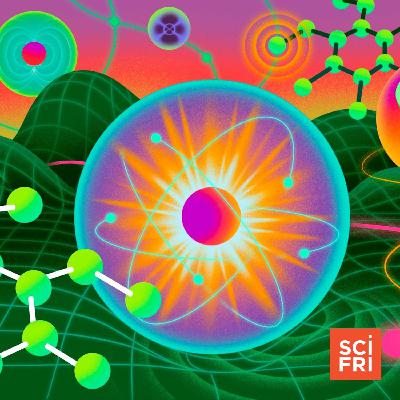
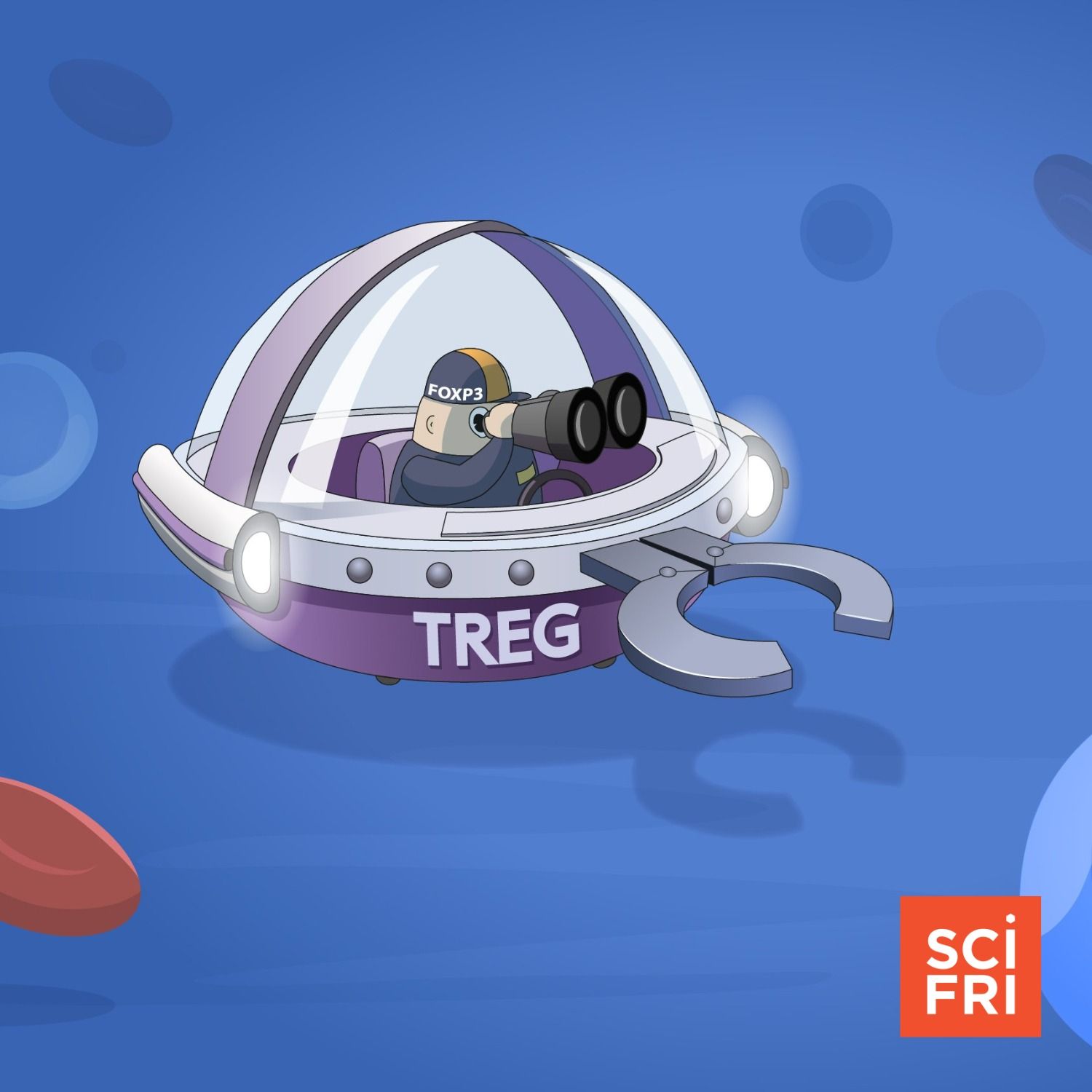

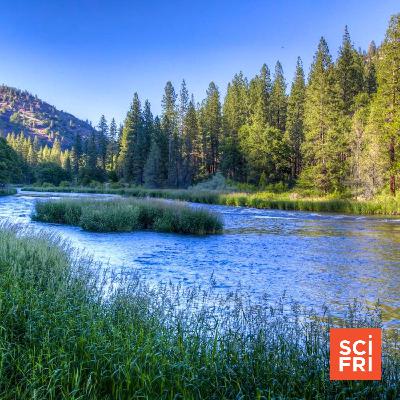

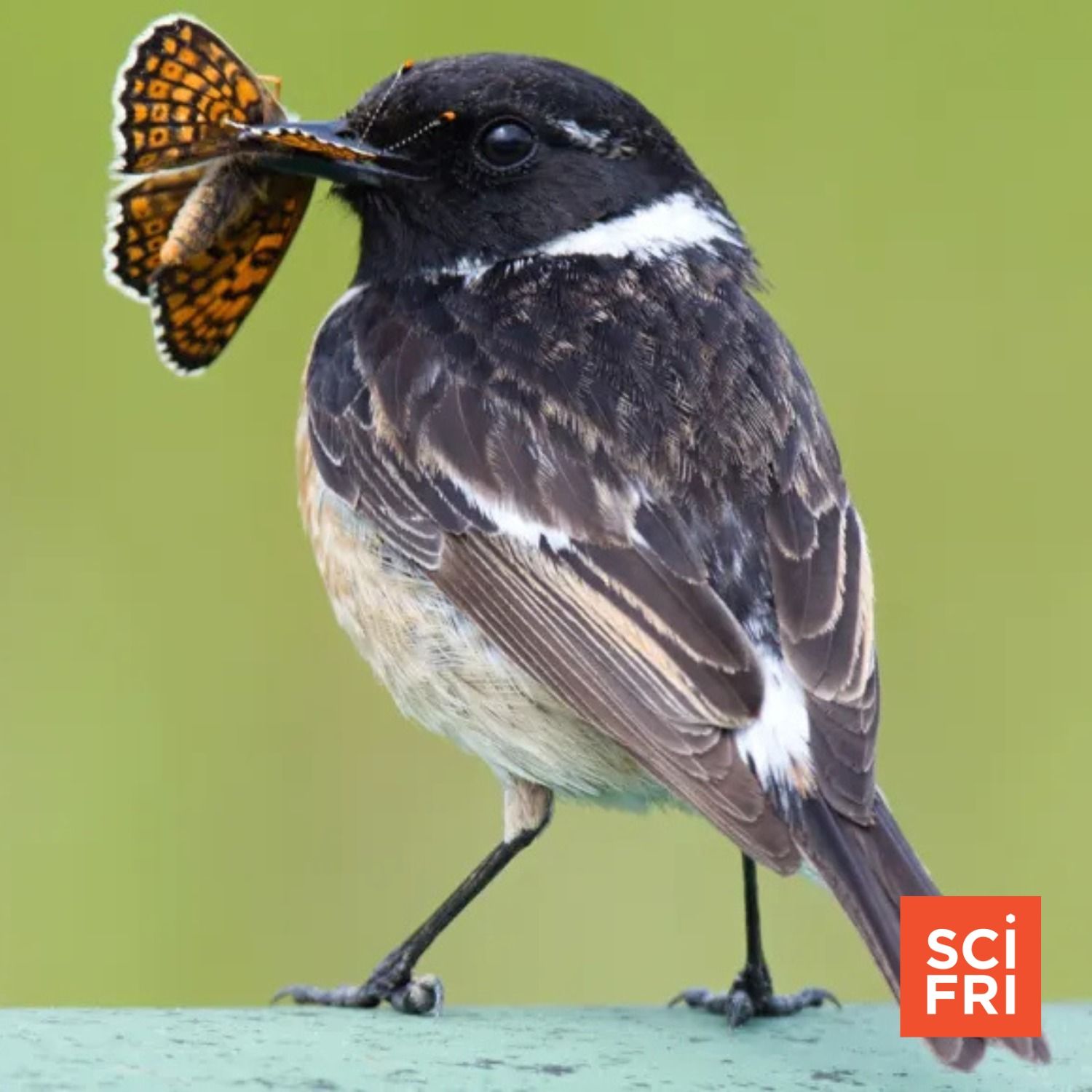


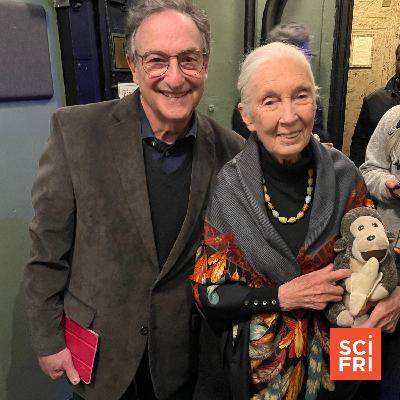
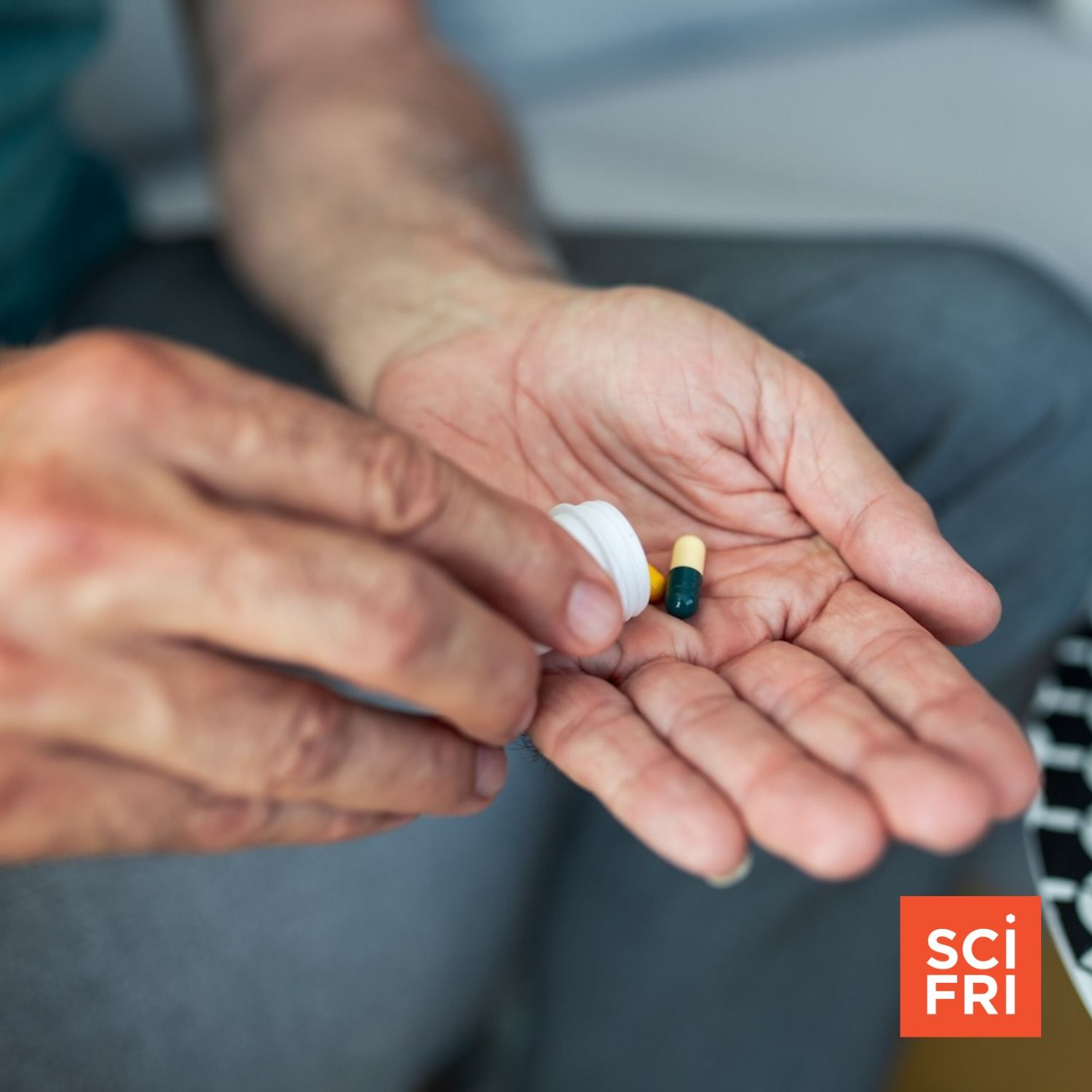

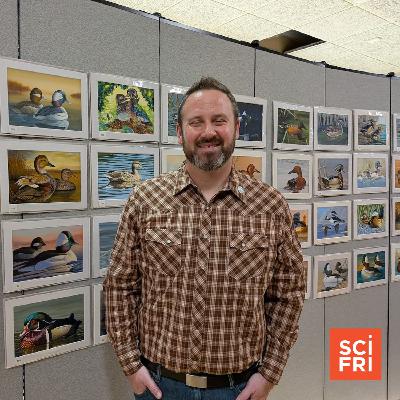


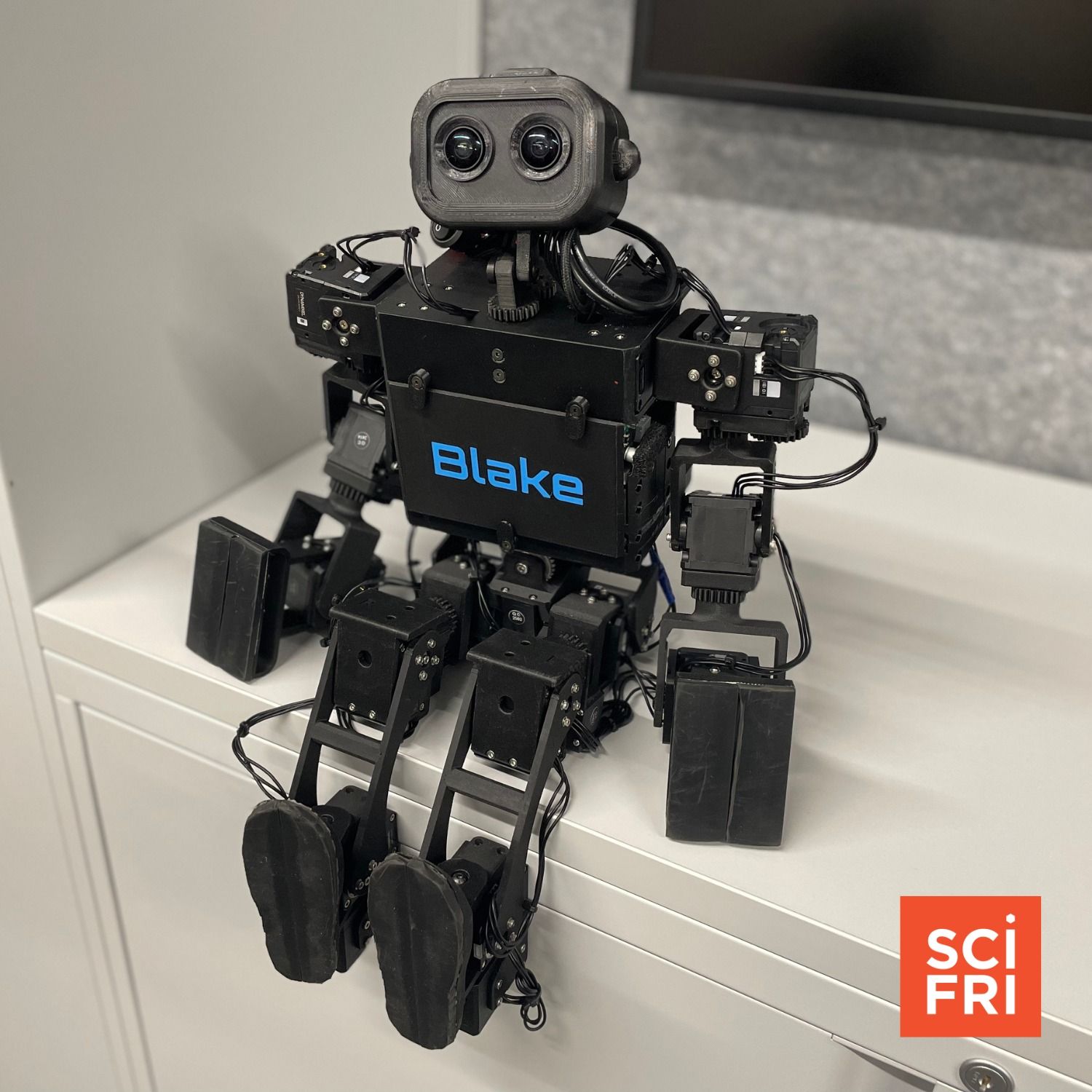
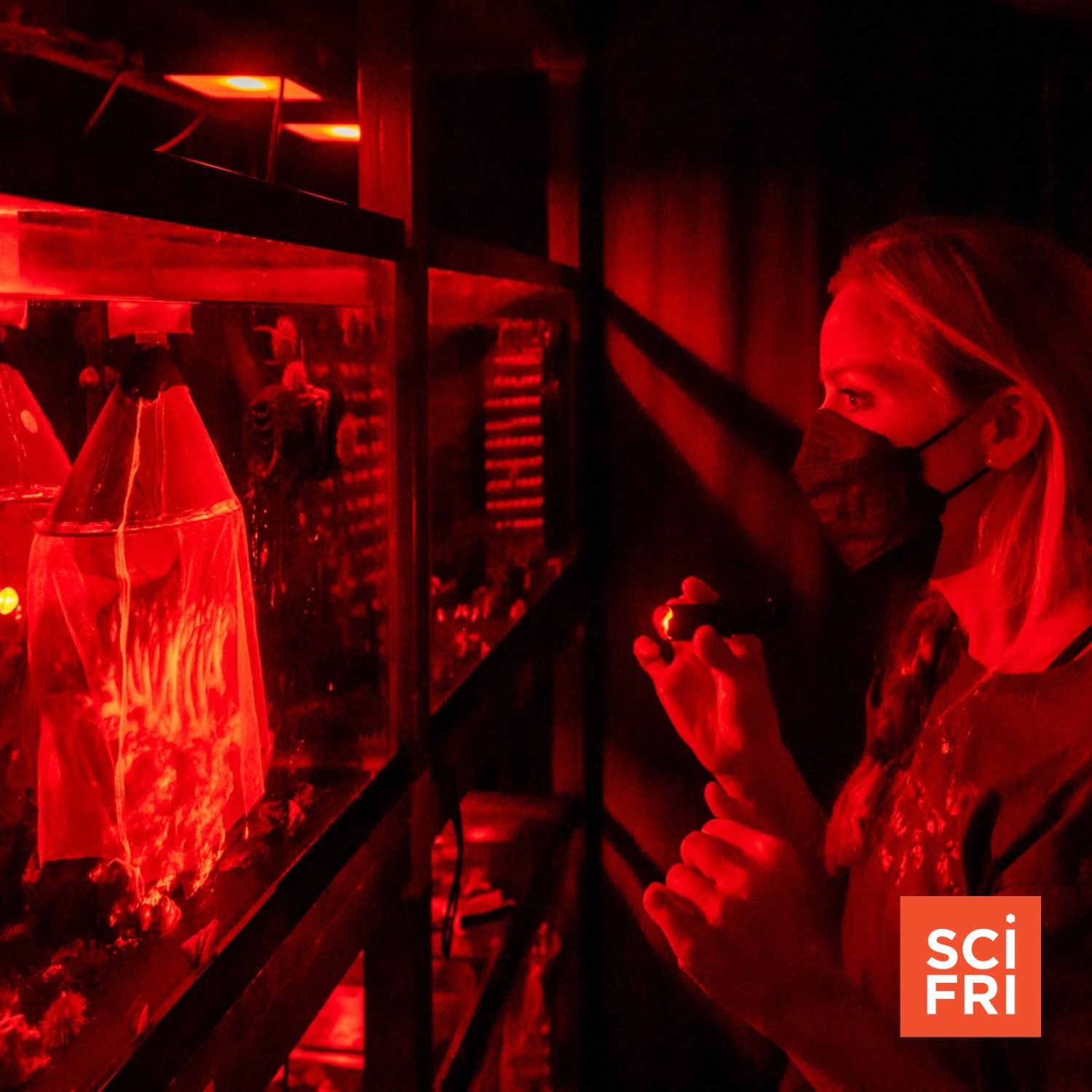

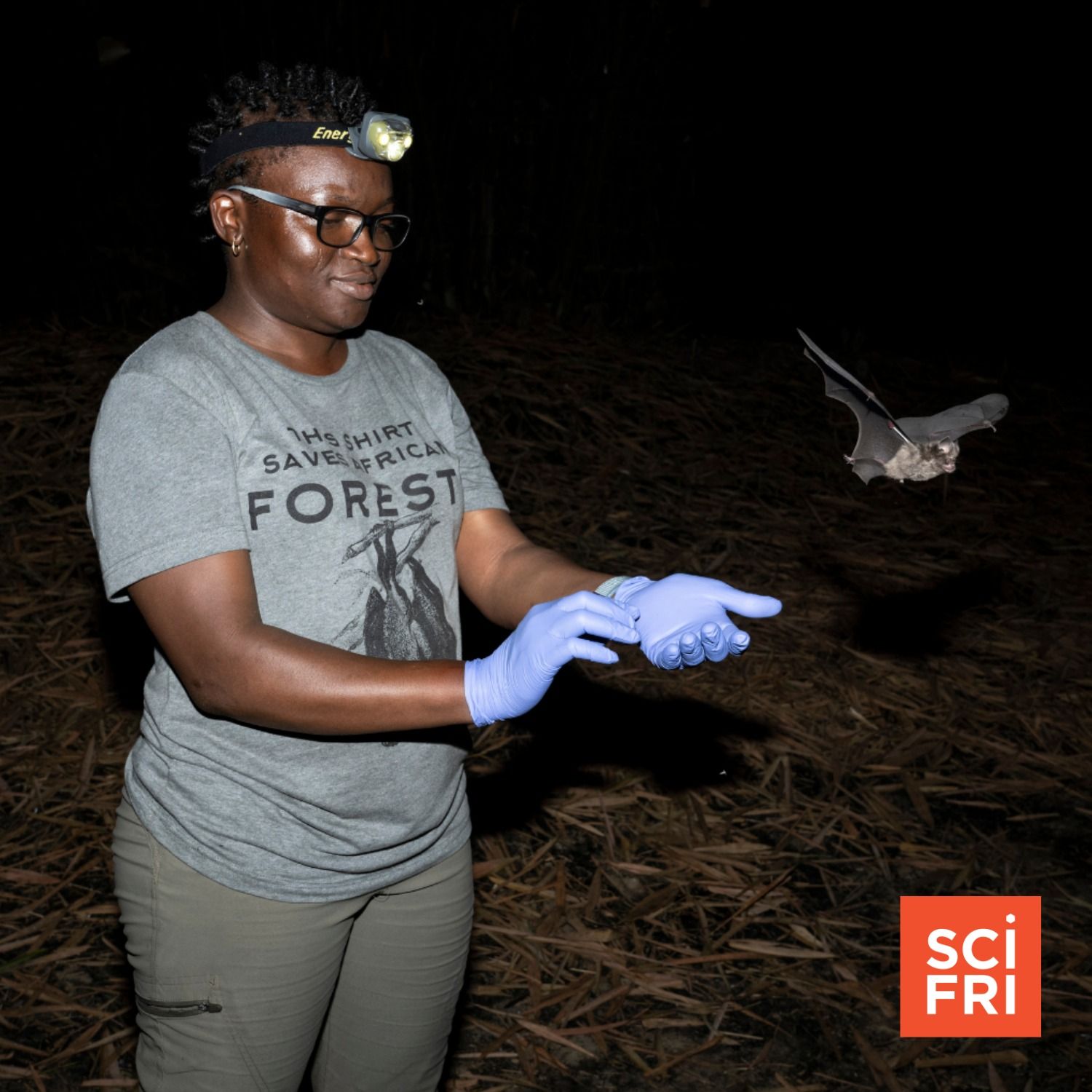
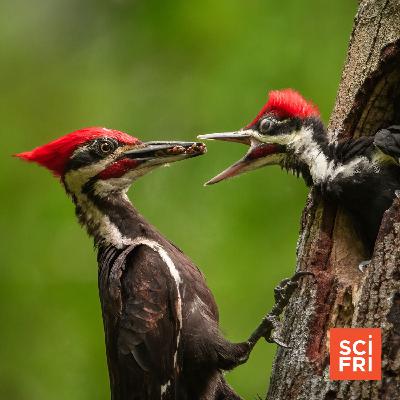
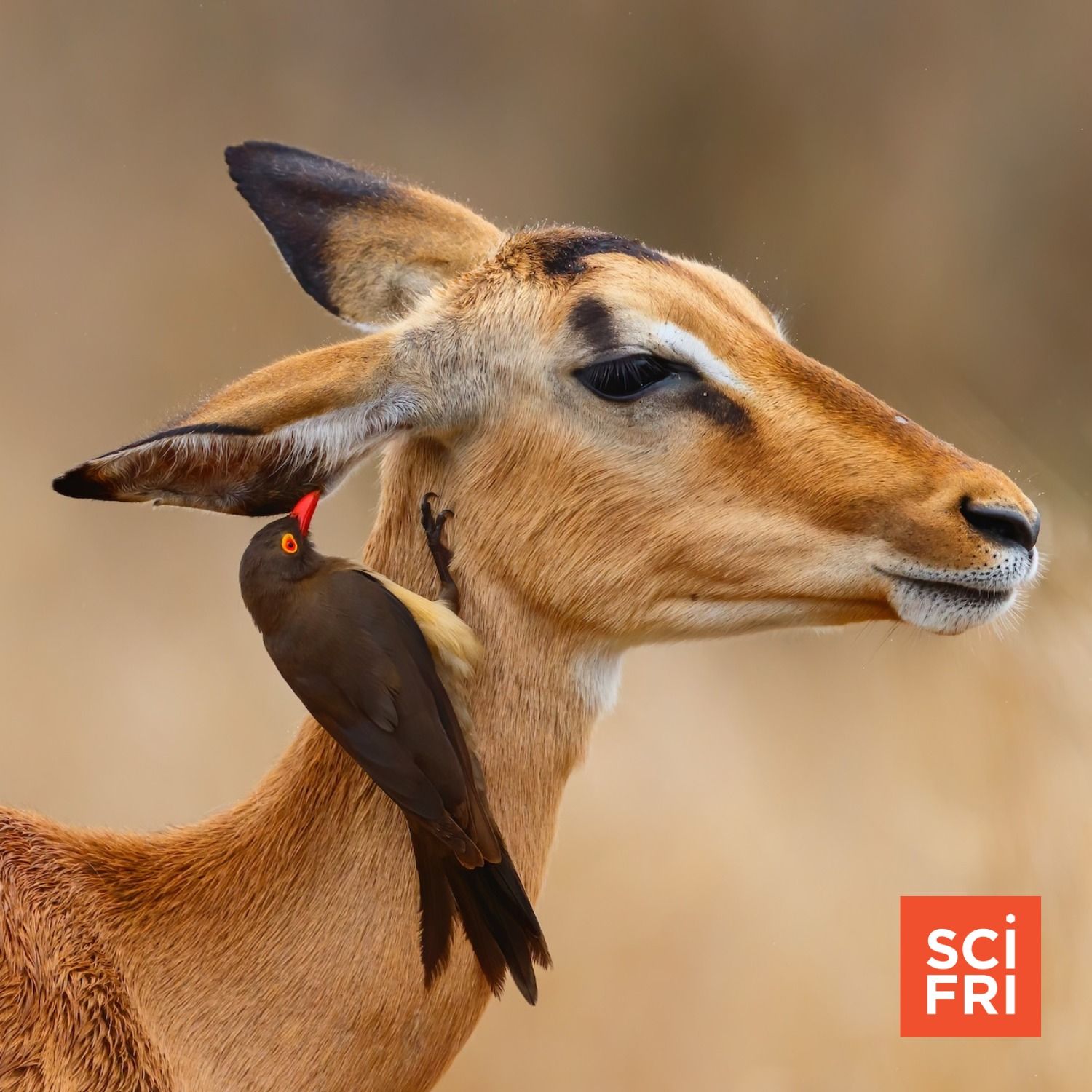



🔥🔥🥳🥳 That's amazing
volume zwQarsa
how can I have the transcription?
two people showing closed minds trying to negate another's observations in real life. sheesh, how many times did they say myth. not cool; hard pass listening to them further
why does Flatow drag these discussions down to a simplistic reduction that yields the same trite predetermined formula he wants for publication? why not find out the basis for new information and what makes it more reliable than previous means of measurement? does this recent finding just increase the range of possible values for the Hubble constant? or does it effectively supersede previous calculations?
some editing issues towards the end of this episode, unfortunate because it's such a good one!
I've often wondered if they could crispr a tree to grow faster and larger for lumber purposes. what's the genetic difference between giant bamboo and pine trees.
1:41 . . . Pi merits our irrational attention . . . Now that's "Woke Friday" for ya . . .
6:10 . . . The language of colonialism & imperialism has tainted this field of science ? . . . I used to regularly listen to SF back a decade or two ago before it became so woke. Then Ira started making global warming a part of every episode. It got so tiring. Science used to be interesting & educational. Now for the most part shows like SF are just preachy political. And they never self reflect on the decline.
Who is throwing shade on plants prehistoric or not ?
Not a single thing about how differently the movie would have been made today was discussed in this episode 😂
bro why you talk like that!
I think we shouldn't act like we're outside of nature. Humans are natural, albeit in very different ways sometimes. If we mess up and ecosystem we should be invested in repairing it as best were able. We protect endangered species all the time; it's odd that we'd treat these trees any differently.
The name is Türkiye, not Turkey. They changed their name almost 3 years ago.
between this guy's microphone and his accent I didn't get half of what he said especially at the critical moments.
This is said here by this politician is almost fake news!
Biochar can be used in the making of green concrete, too
this podcast encouraged me to learn other languages
is there any place which i can acsess to text of this interview?
Hit up Mind Pump podcast, they'll set you straight with personal experience not just studies, and they go over many studies.